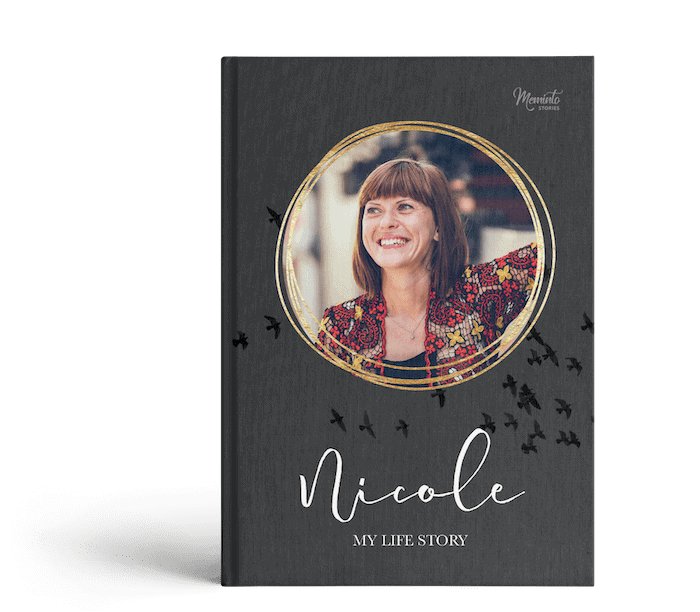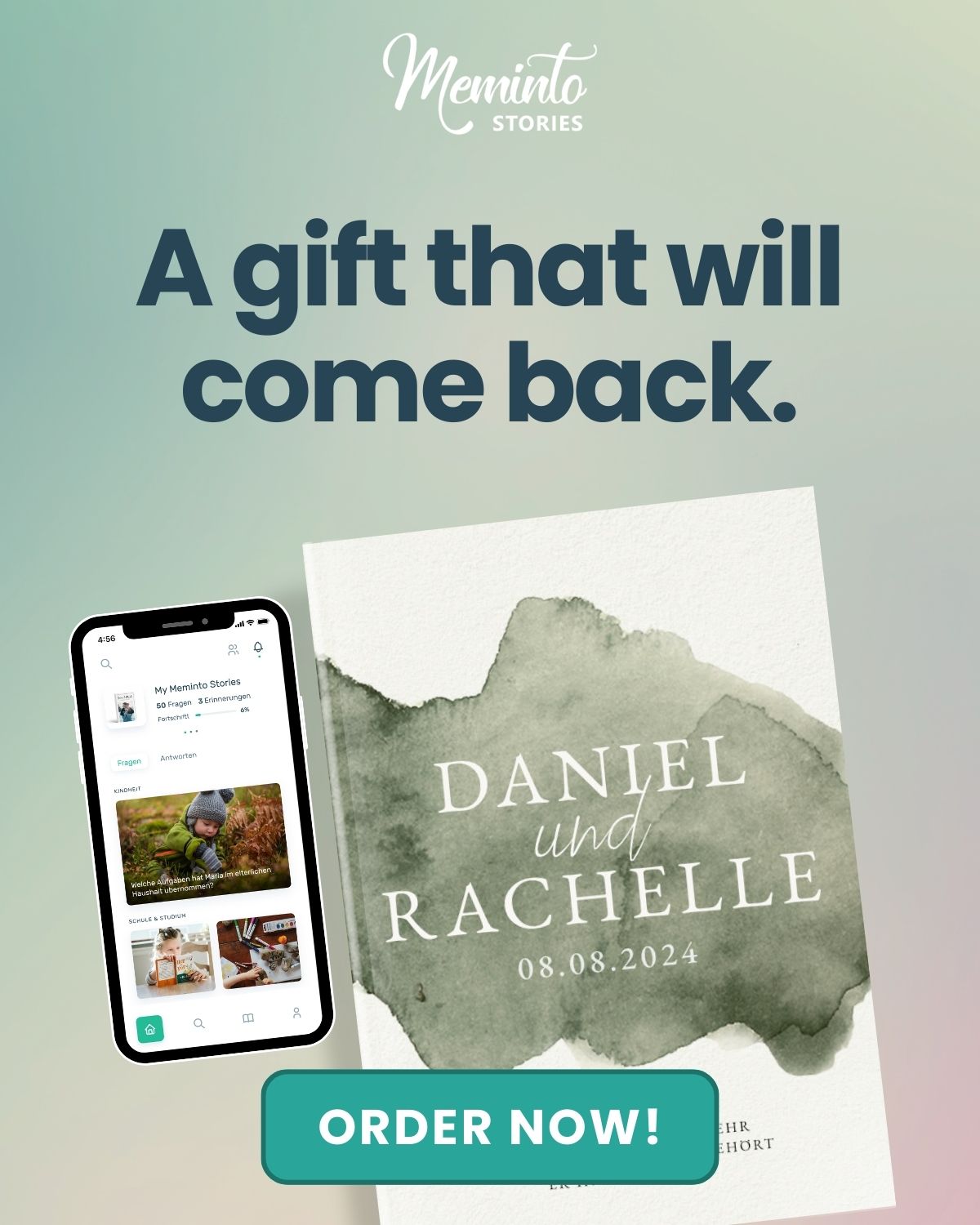There are situations that simply overwhelm
Almost everyone has experienced it in some form or another:
The situation that suddenly throws you off course.
When things occur that seriously change your life up to now, when situations arise that completely overwhelm you, that you couldn’t have planned for, but that ruin your plans for the rest of your life. A terrible diagnosis, the loss of a job, a relationship that falls apart or friendships that have to be ended because there are irreconcilable differences.
Probably the worst case that can occur is the loss of a loved one. When, from one moment to the next, so many things come at you that paralyze you, make you almost incapable of acting, and your world of thoughts seems to be nothing but a hopeless chaos. Because every thought that flashes through your mind is overtaken by at least five other thoughts to the right and left.
When you suddenly have to make decisions that you have never dealt with before. When you have to solve problems you never knew existed. When life seems to go on without taking into account that you can’t and don’t want to take part in it at the moment, because you are trapped in your grief and pain over the loss of a loved one. Normal everyday life for someone who is grieving? Hardly imaginable.
Important in grief work: Talking and writing
The most important thing in grief work is people who help you to understand and cope with death and grief, and who can also help you to forget over time, even if the mourning process sometimes takes longer. By the way, in addition to professional counselors, good friends often play an important role in helping you cope with grief. Friends who listen to you, encourage you or where you can just have a good cry.
But there are also phases in the grieving process when mourners want to be alone, think about everything in peace, sort out thoughts, evaluate the new situation and perhaps even take a look at the future, which now means a life without the loved one. This is the moment when mourners should take a piece of paper and a pen to bring structure to their thoughts and feelings.
Writing is balm for the soul
You’ve heard this phrase many times. It has even been scientifically proven that writing helps in many life situations. And writing down your feelings and thoughts can be an enormous help, especially in coping with grief. Because even though you may talk about the deceased with many people during condolence visits or the funeral service, remember him, exchange stories and anecdotes about him, and recount funny or serious shared experiences – what remains is always a personal relationship you had with him.
And the closer this relationship was, for example between married couples or parents and children, the more personal are the memories of the beloved deceased, which one might not necessarily want to share with others. But for all the importance of people in coping with grief, it is better to do this with oneself.
An inconspicuous notebook full of feelings

A few weeks ago we laid to rest a good friend who would have turned 101 this year. At the funeral service, her nephew read from a notebook in her estate. She had spent over twenty years as a widow and had tried to cope with the loss of her beloved husband through writing. She had written poetry, jotted down personal sentiments and feelings, and noted Bible passages that were important to her as she coped with grief.
We also found a similar book of personal notes in my mother’s estate a few years ago. For all her great grief, she was always outwardly a strong and admirable woman. She wrote down what really moved her, the pain for her deceased husband, the farewell to a dear person after a long harmonious marriage. Through writing, she has grief work for herself in her own way. And although she really was a brave woman who was able to enjoy her life in old age despite being alone, this little notebook is an indication that such a mourning process takes quite a long time, even if the person affected has not noticed it for a long time.
In both cases, we are not talking about great, writerly treatises. They were simple, handwritten notes full of emotions and memories. Thoughts that came to the writer’s mind while remembering the deceased and which she then jotted down. Without structure, without chronology – simply a reflection of their troubled world of thoughts, which they sorted again by writing down their feelings.
I remember that my sister was fighting tears at the time when she read out a few passages from the book. And somehow we had the feeling that our mother was not only coping with her own grief, but also wanted to leave us something with her written thoughts, something to think about, something to inspire us, and perhaps also something to help us in our own grieving process.
Just write - informally and unsorted let your thoughts run free
If you are in the process of grieving and your thoughts are constantly revolving around the deceased loved one, find a quiet place, sit down and start putting your thoughts on paper. Start writing, write what you feel and what moves you. Unsorted, in whole sentences or single words, don’t care about grammar and spelling. Stop writing when you feel like it and start writing again when you feel like it.
This is your own personal way of grief work. It feels as if you are slowly but surely unwinding a ball of wool, as if you are gradually emptying a cluttered drawer and bringing order to it. Your thoughts become clearer and more structured. Much of what went through your mind before is now on paper in front of you. Just like the contents of the aforementioned drawer.
A beautiful tool for grief work: The Meminto Stories memory book

The Meminto Memorial Book is made to record memories of a deceased loved one. It can be the object of very personal grief work. Or a work of several mourners who want to share their memories and experiences or express their feelings in this way.
Capture your memories now!
Get access to hundreds of questions. We'll structure your answers, make sure you don't forget anything, and take care of printing and mailing. In a few weeks, you'll have a book of memories of your loved one in your mailbox!
With the Meminto memory book, memories of a person are kept alive even after their death. Surely you think now, one has other things in the head during a mourning process than to write a book. You don’t need to. Because Meminto Stories takes care of that for you. When you log on to www.meminto.com, you can simply select the “Memorial Book” section, enter a few details and the process is set in motion.
You will be asked questions by Meminto on a regular basis and you will be surprised what memories of the deceased will be activated that you may not have been aware of. In the end, Meminto will create a real book from your or your answers, professionally printed and with a beautiful cover. You will find that this memory book has a similar positive effect on your grief management as writing down your thoughts.

















